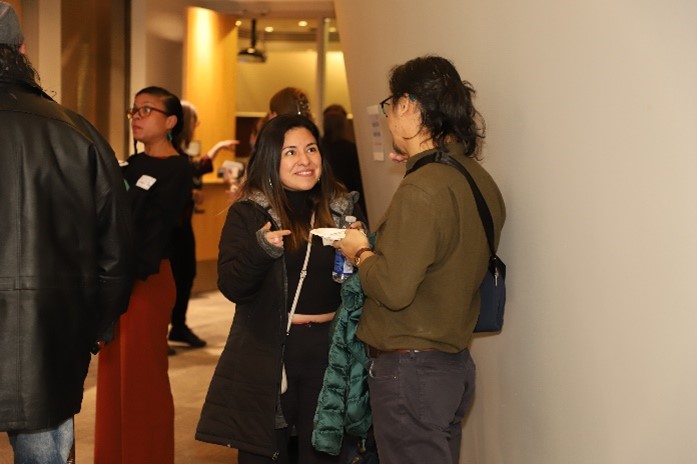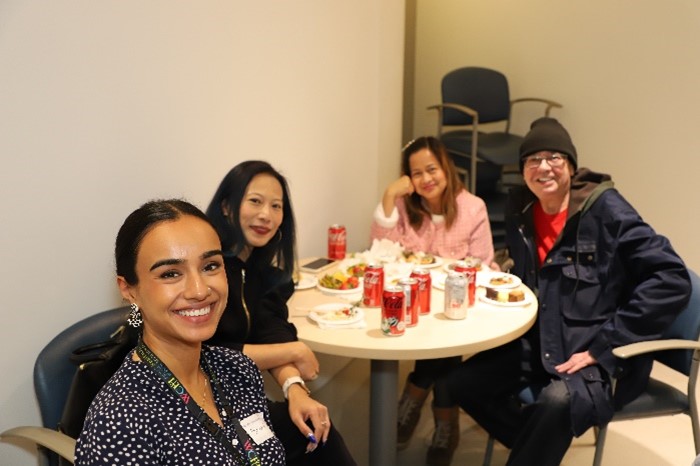Today, four in five people in Canada live in urban areas. Urbanization and densification are only expected to increase in the coming years. We know that our built environment – the homes we live in, the transit systems we use, our community spaces and the services available to us – all affect our physical and mental health. Put simply we are not immune from our environment. And yet, discussions linking our quality of health and our city landscapes are lacking.
On November 8, 2023, Women’s College Hospital (WCH) hosted Healthy Cities, Healthy People its first in a series of annual health-focused public events. Funded by the Canadian Institutes of Health Research’s Café Scientifique grant, Healthy Cities, Healthy People brought together a diverse group of presenters and attendees for a lively and interactive program exploring how our urban landscape impacts our health and wellbeing.
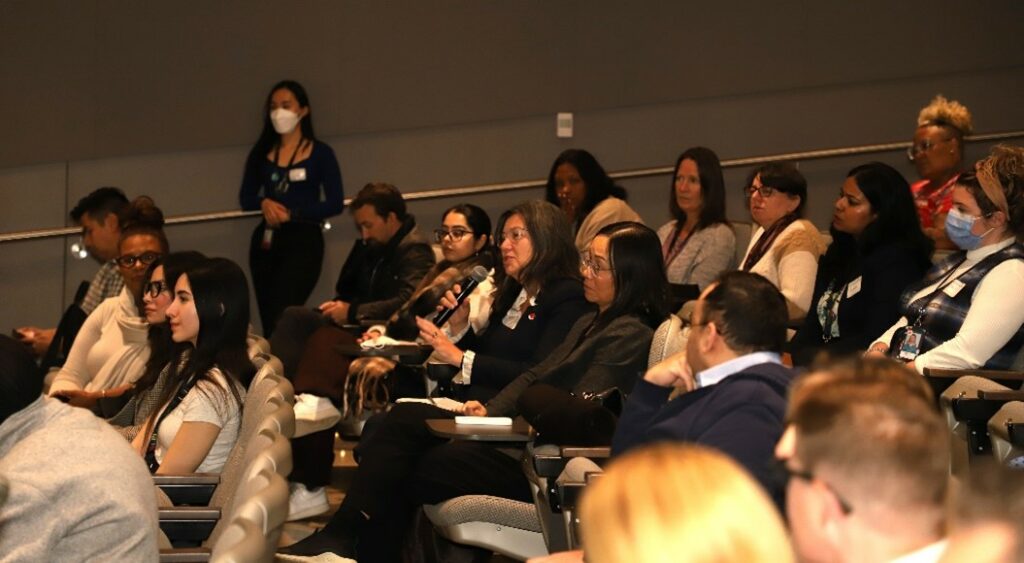
After opening remarks from WCH executive leaders Heather McPherson and Dr. Rulan Parekh, and video remarks from Toronto Mayor Oliva Chow, the speaking sessions began moderated by Vicky Forster, patient & community engagement lead at WCH.
Speakers and presentation topics included:
| Name | Title | Topic |
| Bianca Wylie | Writer & Public Interest Technology Advocate | Digital Rights and Responsibilities: How Public Health Practices and Digital Transformation Come Together in the City |
| Esmond Lee | Artist, Architect, PhD Student – Critical Human Geography | Migration and Settlement in Toronto’s Suburban Landscape |
| Dr. Blanca Bolea Alamanac | Assistant Professor, University of Toronto and Psychiatrist, Women’s College Hospital | Healthy Cities, Resilient Minds |
| Dr. Beth Coleman | Associate Professor, University of Toronto | Healthy Cities & Empowered People: The Perils and Promise of Health Data |
| Diana Chan McNally | Community Worker, Educator and Advocate | Public Space for the Public Good: Human Rights and Homelessness in Public Parks |
| Nicole Austin | Black-led Programs Coordinator Food Sovereignty Advocate, Toronto Metropolitan University Urban Farm | Food Justice in Action: The Urban Farm at TMU |
| Arlene Throness | Urban Farm Manager, Toronto Metropolitan University Urban Farm |
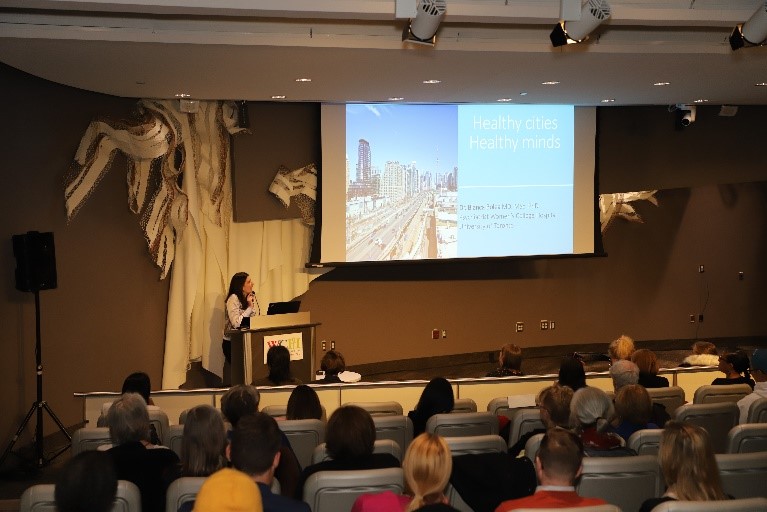
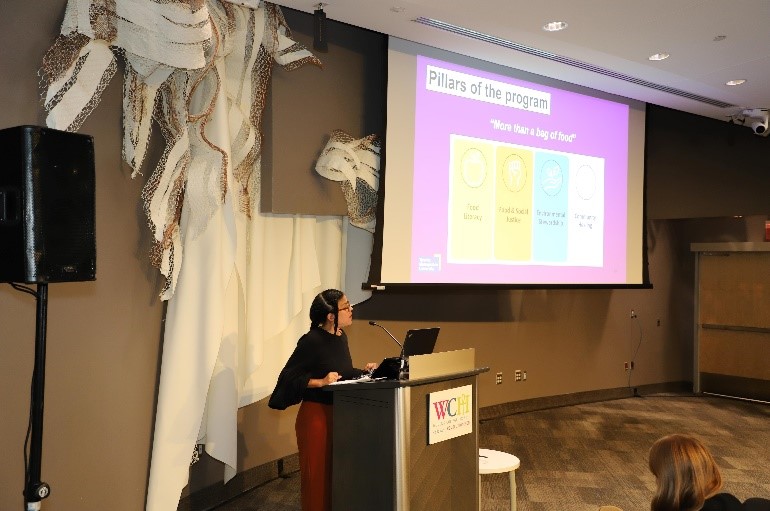
While the speakers’ areas of expertise differed, there were multiple commonalities across their presentations. The importance of health equity and the recognition that not all city residents have access to the same degree of services and supports was continually stressed. Investigating how city design, policy and practice can advance health equity was a consistent focus across all presentations.
Another reoccurring theme or concept was the idea of a “third place” – a space outside of home or work where people can spend time connecting and engaging with community. Community gardens or urban farms, municipal parks, train stations, coffee shops and places of worship are all potential “third places”. Not only do third places help to boost mental health, reducing feelings of depression and isolation, they enable people to engage meaningfully with the world around them.
As the speaking sessions wrapped up, attendees were invited to take part in three possible interactive events. The first was a community photography exhibit with the photographers onsite for questions and discussion. The second was a virtual reality (VR) headset experience allowing participants to “walk” through major urban centres around the globe. And the third was an activity called “Conversations with Neighbours” where attendees could have one-on-one conversations with volunteers about their diverse life experiences and health challenges. In addition to the three interactive components, attendees were also encouraged to network and get to know each other.
Thank you to all the speakers and attendees for taking part! Health Cities, Healthy People was a resounding success. By sharing relatable research evidence and engaging directly with our communities, we can advance collaboration, education, and action on urban health.
